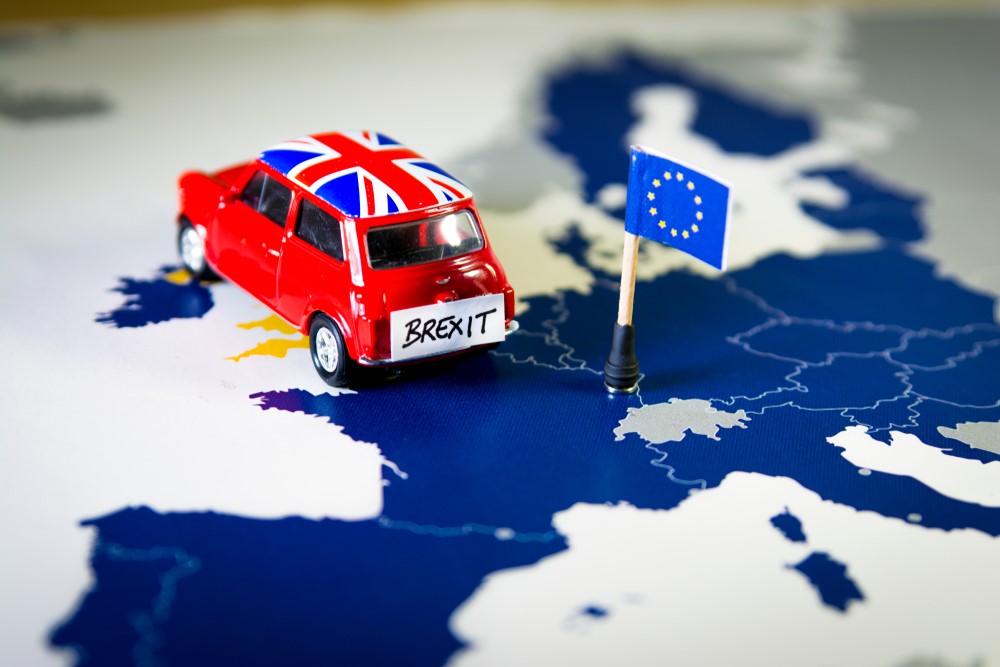In the aftermath of Britain’s surprise vote to leave the European Union in June 2016, political elites and the mainstream press went into a tizzy.
Their abject view was neatly summed up by Dutch Prime Minister Mark Rutte, who insisted that the United Kingdom had just “collapsed politically, monetarily, constitutionally and economically.”
Hmm.
The vote caused a short-term dip in global equity markets and an immediate depreciation of the pound.
This was understandable. After all, the world’s fifth-largest economy would be leaving the 28-nation European Union.
And there were distinct advantages for membership. The EU is a single market for trade in goods and services – encompassing more than 500 million people. It reduces tariffs and other frictions, spurring competition and efficiency.
But EU membership also entails a significant surrender of national autonomy. This wasn’t terribly popular with the Brits.
Brussels has its tentacles in virtually every aspect of members’ lives, including immigration. Its burdensome regulations affected nearly 70% of the British government’s actions.
As political columnist George Will noted at the time, “The EU has a flag no one salutes, an anthem no one sings, a president no one can name and a sclerotic bureaucracy no one admires.”
Pundits thought the “leave” vote would be a disaster.
We thought otherwise, calling it “the most significant event in the postwar history of Britain” and pointing out a number of excellent investment opportunities.
Diageo (NYSE: DEO), Rio Tinto (NYSE: RIO) and HSBC Holdings (NYSE: HSBC) are just three British recommendations that have paid off handsomely for us over the past two years.
But how have things panned out more generally?
Fraser Nelson, editor of Britain’s The Spectator magazine and a columnist for The Daily Telegraph, summed it up nicely in a recent op-ed piece in The Wall Street Journal:
- In the run-up to the 2016 referendum, the International Monetary Fund predicted that a vote for Brexit would result in sharp drops in equity and home prices and a downturn in foreign investments. (Instead, all three went on to hit record levels. In the last 18 months alone, the iShares MSCI United Kingdom ETF (NYSE: EWU) is up more than 20% in dollar terms.)
- Barclays, Credit Suisse and Nomura all forecast that the British economy would contract in 2017. (It expanded.)
- The Organization for Economic Cooperation and Development warned that fearful consumers would cut back their spending. (They spent more.)
- The U.K. Treasury said the economy would “fall into recession with four quarters of negative growth,” while “unemployment would increase to around 500,000, with all regions experiencing a rise in the number of people out of work.” (Instead, economic growth accelerated, employment rose by 560,000 and unemployment currently stands at a 43-year low.)
- Meanwhile, the number of Brits working stands at a record high.
- New orders for manufacturers are at their highest level in a generation.
- Income inequality is approaching a 30-year low, according to the Office for National Statistics.
- Wages are up. Inflation just hit a one-year low. And the country’s national happiness index stands at a peak.
This surprises an awful lot of pundits, not least of all New York Times columnist Paul Krugman, a man not recognized for understatement.
The week after the Brexit vote, he lambasted “seriously evil editors of Britain’s tabloids who fed the public a steady diet of lies” and David Cameron, the one who would “go down in history as the man who risked wrecking Europe and his own nation for the sake of momentary political advantage.”
Krugman has made a career of being wrong, of course. (This is the same guy who famously declared in 1998 that the internet would have “no greater impact on the economy than the fax machine.”)
But why did so many other pundits get it so wrong?
Because they marinate in each other’s negative biases and opinions, then make guesses – about consumer spending, investment and productivity – that turn out to be nonsense.
The bottom line nearly two years after the Brexit vote? The U.K.’s economy is doing fine. London remains one of the world’s great financial centers (some would say the great financial center). And British stocks are pressing higher.
Thank your local pessimist. They make it so much easier for the rest of us.
Good investing,
Alex
Thoughts on this article? Leave a comment below.
